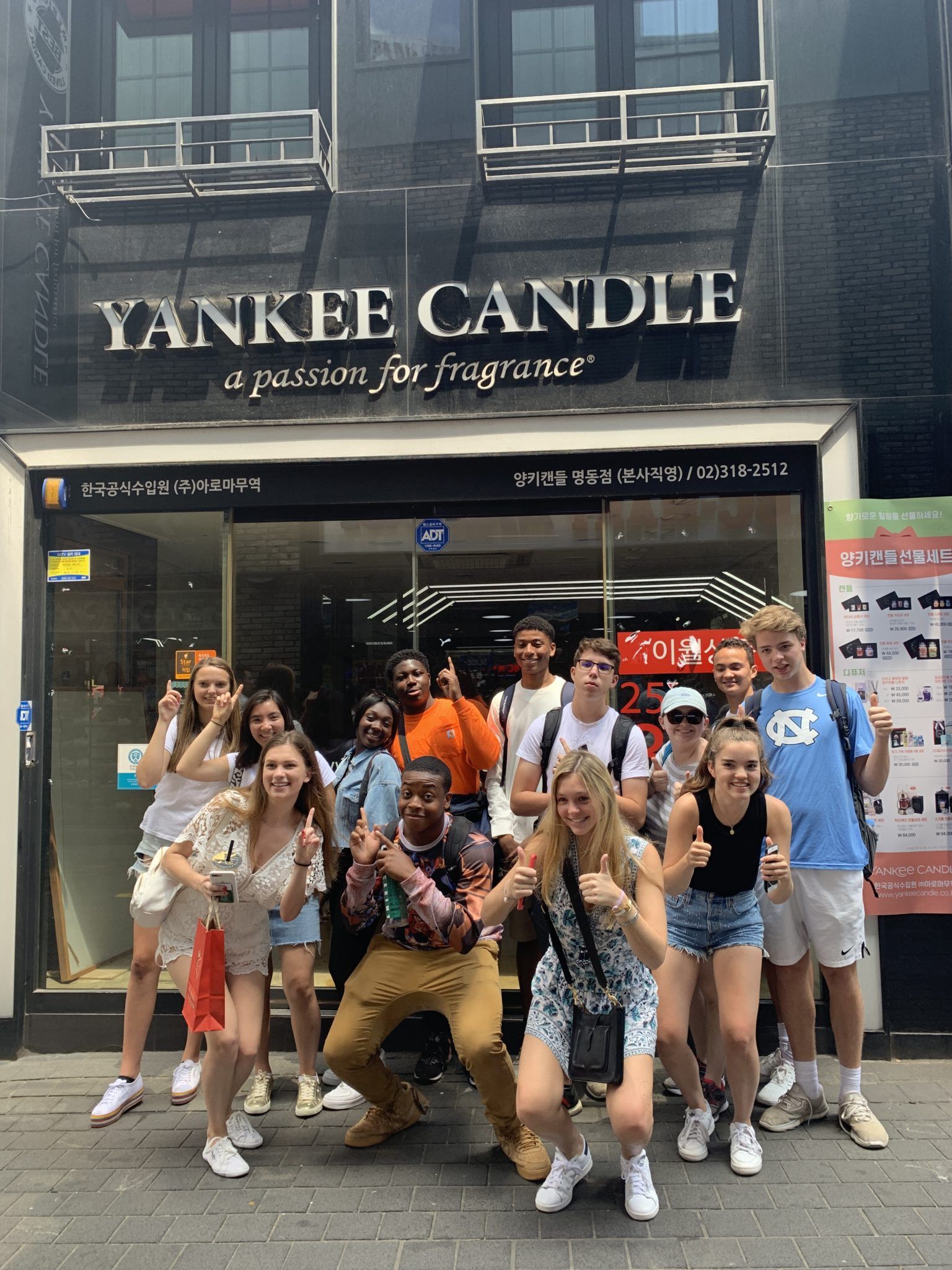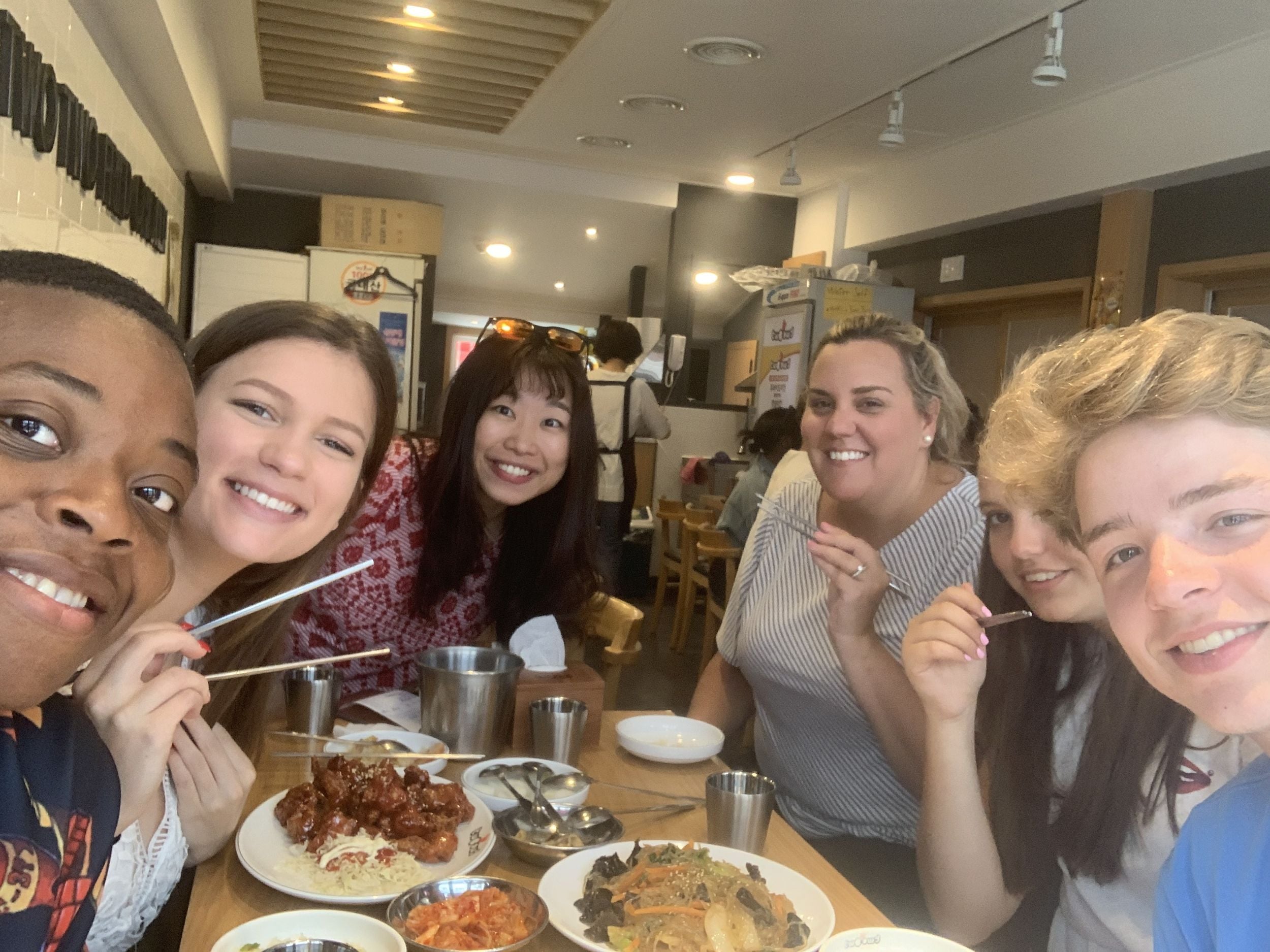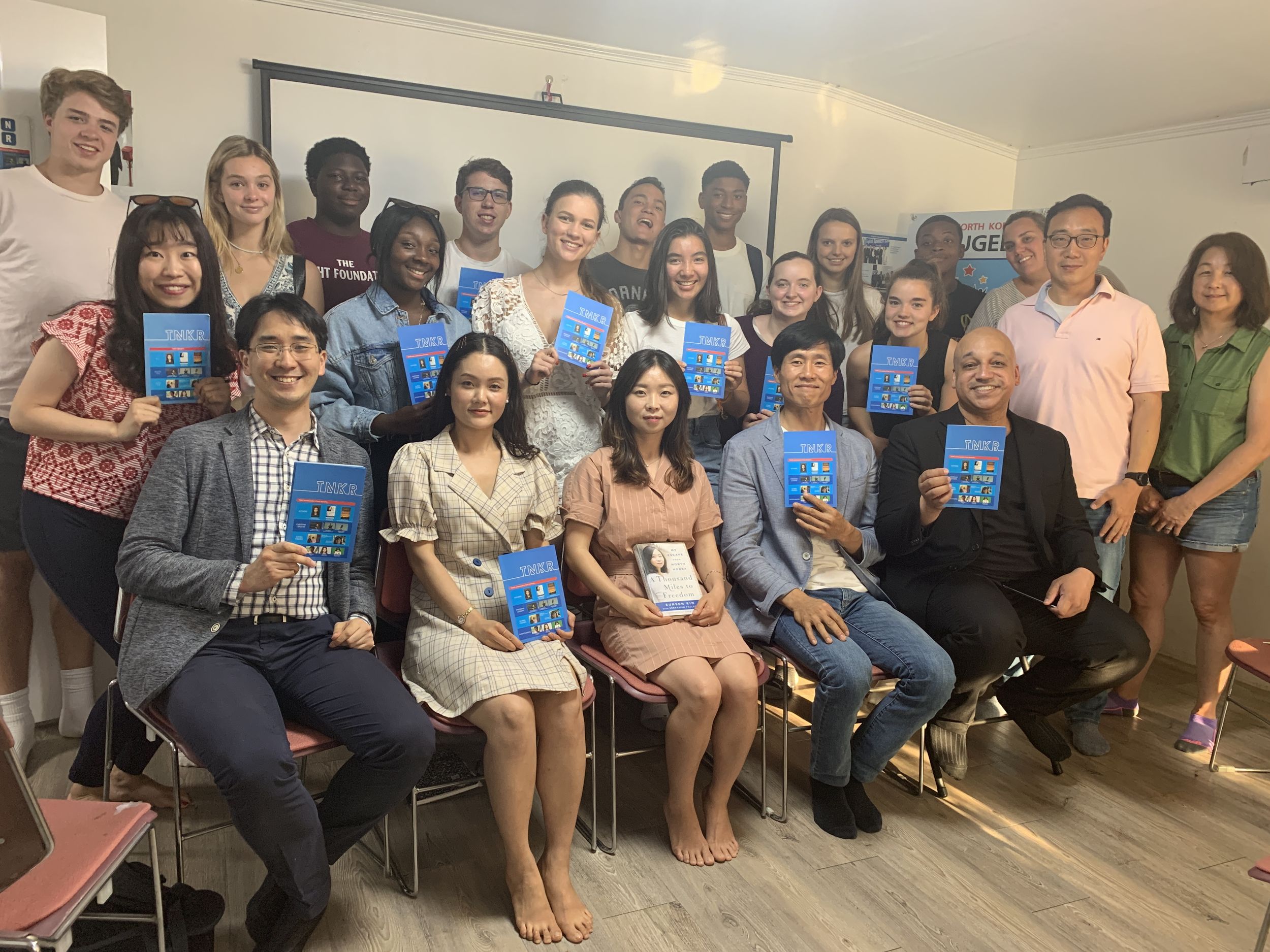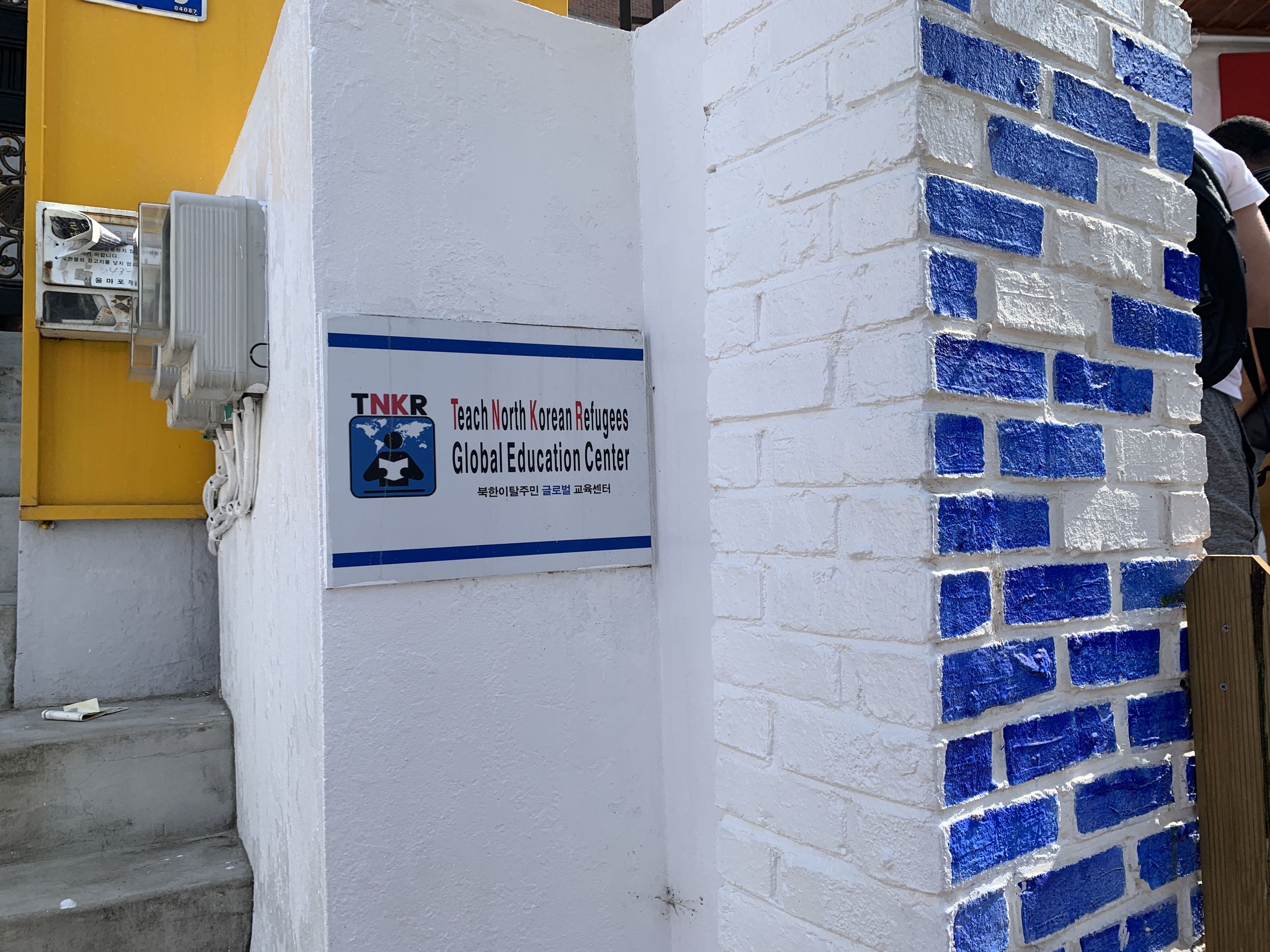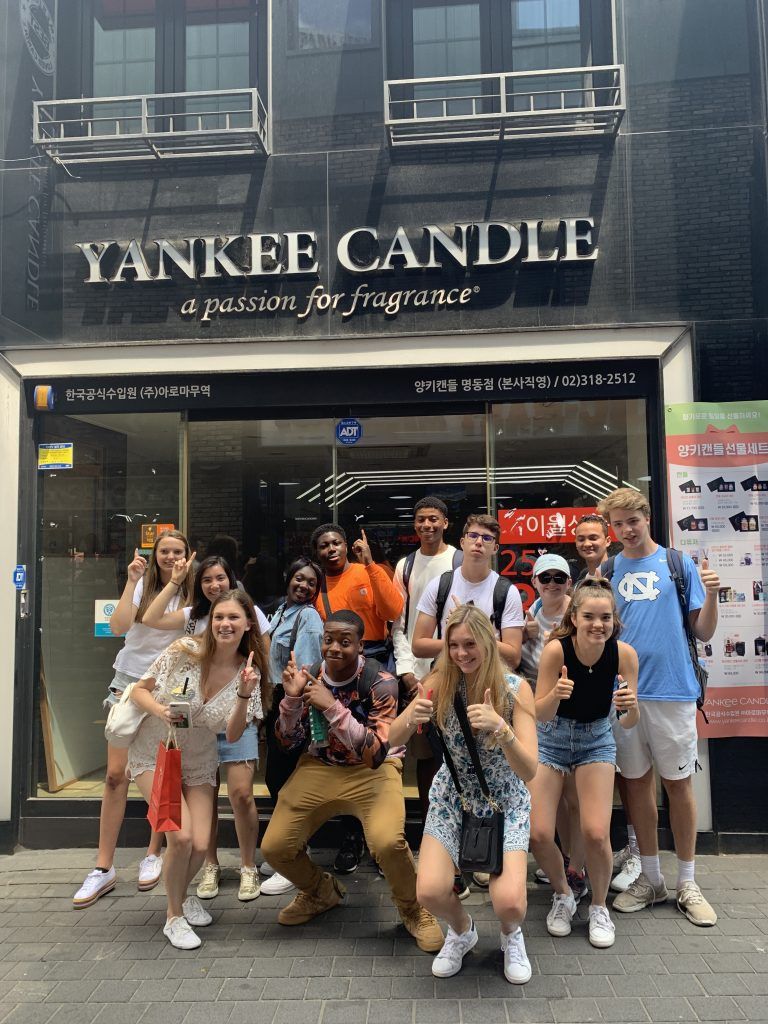Oliver Pink ’20 and Ella Holowesko ’20 describe a day exploring Seoul’s architecture, “delicious” cuisine, and an emotional visit with the organization, Teach North Korean Refugees.
Ollie:
Day 4 of the South Korea trip was filled with many exciting activities along with various delicious Korean cuisine. The group started the day at the Cheonggyecheon Stream where we learned about Eco-Design and the riveting architecture of this part of Seoul. Students were tasked with the activity of drawing what they observed in a certain area of the stream then later explaining the significance of the architectural components. It was particularly compelling to acknowledge the influence both industrialization and modernization have had in the past century on South Korean architecture. This stream flowing through the center of Seoul allows for people to appreciate the essence of nature within the corporate world.
Next, we travelled to Myeongdong to explore many small shops and restaurants. We split up into small groups for lunch with the charge to get out of our comfort zones and experience a new cuisine. The meal culminated in mouthwatering dumplings, succulent fried-rice, exquisite noodles, and lip- smacking chicken that left everybody with a full belly.
In the afternoon, we travelled to Gwangheungchang where we met and heard from students of the Teach North Korean Refugees program. These students told their captivating stories of escaping North Korea and left our group with heavy emotions. My classmate speaks more on this experience in the alternative blog post for the day.
Our final episode of today’s adventure took place in a Times Square-esque marketplace of Seoul where we enjoyed an appetizing dinner. This meal consisted of Korean barbecue where students were given the responsibility of cooking their own dinner! Each table was given the opportunity of grilling pork and beef while devouring flavorful salads. Overall, today consisted of immersing ourselves in a foreign culture while finding appreciation for South Korean cuisine. We look forward to learning about K-Pop and Coupang tomorrow.
Ella:
This afternoon we had the privilege of listening to three North Korean refugees share their paths to freedom through an organization founded in 2015 called “Teach North Korean Refugees.” This non-profit aims to develop fluency in English, so that each refugee has a voice to share their story.
Kin, Yuna, and Eunsun each shared profound, yet jarring experiences of their escapes. While each individual’s quest for freedom highlighted a different aspect of tragedy (ie. the corrupt nature of education, the distorted and controlling government and a deathly famine), the power of story and communication remained a constant throughout each refugees’ experience. For example, Yuna concluded her story by announcing that “North Korea is like a jail cell and the only thing that can unlock it is storytelling and global understanding.”
In a moment of both individual and group reflection, I have come to appreciate the power of this statement. Storytelling, particularly in this context, is indeed such an interesting and remarkable concept to comprehend. Oftentimes the power of communicating through story is overlooked, yet the fact that over 400 refugees have joined forces with this organization in order to share their experience is fascinating, because it reaffirms the powerful nature of telling a story.
While all three of these presentations today stirred up a variety of horrifying, yet inspiring and moving emotions, each story proved the timeless sense of storytelling. It is through the language of communication that human connections are made, that citizens evolve and that our world begins to break down barriers in the quest for change.
I can confidently say that each member of our group left the TNKR headquarters feeling more knowledgeable, curious and enlightened, while holding a very vulnerable experience close to our hearts.
